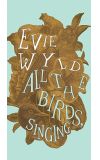
29 Jun 2013 01:00:59
Or so she thinks. She's in no mood to put up with it: her cottage contains a gun, but no fresh bread, axes but no homely fire. Her only companion is a dog called Dog. Is it a yellow-eyed beast, or someone out to track her down? Is it just a fox? When something clatters through the house at night, it could be the ever-present wind and weather, or something more like a poltergeist: a manifestation of all her traumatised and anxious energy.
For the outsider is not the "beast" but Jake herself, who, despite her competence, lives in fear and isolation at the edge of a community. To her chagrin, Jake has to call upon Farmer Don for help more than once. He is a sort of father figure, a decent male where otherwise there are none. "You should go down the pub," he says. "Farmers need each other." She doesn't make friends. She reports the sheep-killing to the police, but is patronised and dismissed.
This is the English side of the story: there is also an Australian side. Jake is Australian, and the novel shifts convincingly back and forth in short sections, from the wintry island to the heat and dust – and spiders – of Jake's homeland.
She has fled Australia to escape the degradations and recriminations of her young life, and as the English story moves forward in time, the Australian story moves back. The deft thing about this novel is that Jake's paranoia is justified and catching: again and again our suspicions are raised. What has she fled? What caused the scars on her back? Perhaps something happened at the sheep-shearing station where Jake worked, the only woman among a shedful of foul-mouthed, rough and ready men. "Not a bad bloke," they said of her, until she was rumbled and had to flee again.
Perhaps the villain of the piece was Otto, the vulgar old farmer she had shacked up with, who locked her in at night and went to town alone. He took sexual pleasure in slaughtering sheep – she was wise to run from him – but he didn't cause the scars. Did the damage come from the squalid non-life Otto had "saved" her from in turn? Or something before that, when she was a teenager at home? With every new layer we are convinced we have our reason, until we realise that we have accused the wrong fella, which is chastening. Not that they are a pleasant lot, these Australian men – certainly not Otto and not the various clients before him, serviced in the back of their utes.
Meanwhile, on the island, Lloyd has turned up to fuel Jake's already heightened sense of alarm. He seems just a mild-mannered vagrant, but is there a trace of Australian in his accent? Lloyd helps Jake and her sheep out of a muddy hole and they form a team of sorts. He can't leave because of the weather, so he sleeps downstairs, does a bit of tidying up, lights a fire. Jake continues in her delusions – or are they? – but slowly comes round to his presence.
In a sense, this is a tale of possible love and redemption, at once energetic and dark. In another sense, it is a book about summary justice and suspicion, which we readers have been indulging in too. There is a Young Adult feel to it, in style if not content: the pace and snappy dialogue, the punchy first-person narration, the touch of outback gothic, the outsider-ness and, of course, the symbolic "beast" prowling the island – all these are youthful.
The two continents are vividly drawn and the book is busy with sheep, dogs, appalling Australian spiders, but, puzzlingly, few of the birds of the title. We have to wait a long time for them. However, when the birds do "sing", and Jake's primal tragedy is revealed, it is clever and very unexpected indeed.

